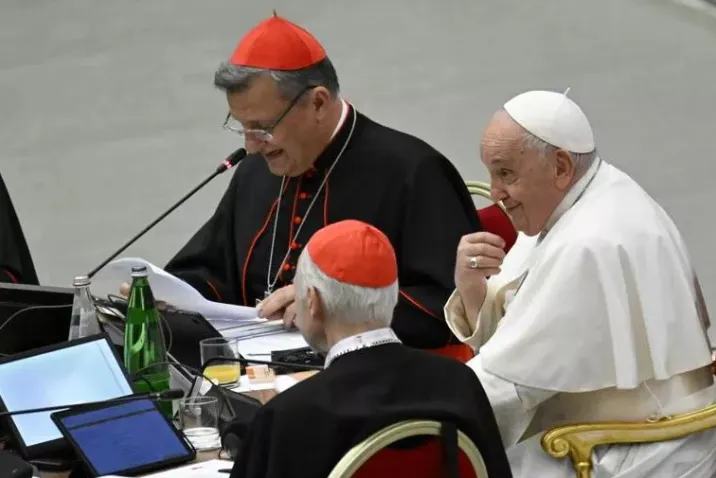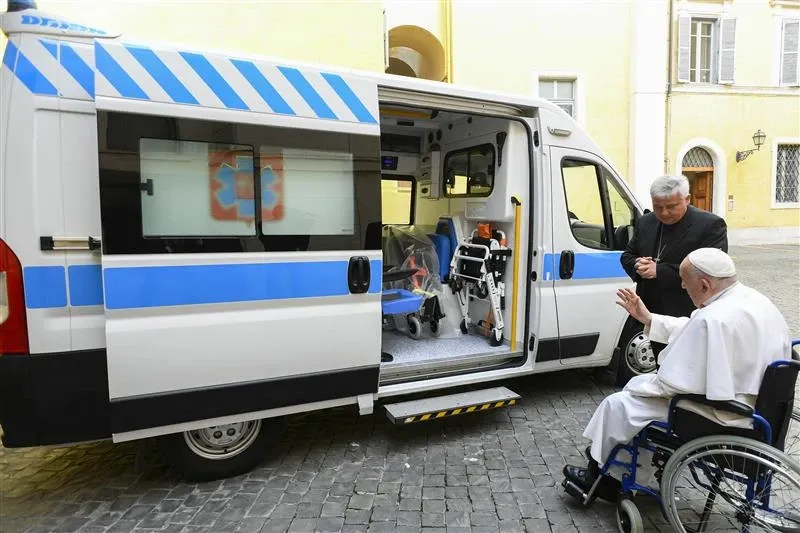Other questions
The relation between the Synod on Synodality and the newly minted study groups isn’t the only question hanging over the new approach.
A crucial one is who will actually be in the groups. In addition to members of the relevant Vatican dicasteries, the guiding document calls for “experts from all continents” in order to ensure that the 10 groups proceed in an “authentically synodal manner,” but names have yet to be released.
The topic is a major concern, because the Synod on Synodality has arguably been animated by a bias toward the views and concerns of those from the secular West.
For instance, while the term “LGBTQ+” was rejected by the 2023 assembly and not included in its synthesis document, it had been repeatedly used in the preparatory documents produced by the Secretariat of the Synod. Relatedly, Pope Francis’ personal nominees for the Synod on Synodality were disproportionately European and North American, as were the selected theological experts.
(Story continues below)
Some study group members are already known, as the Vatican indicates the respective dicasteries (none of which are currently led by an African, a notable break from precedent) that will collaborate on a given theme.
For instance, Cardinal Victor Fernández, the prefect of the Dicastery for the Doctrine of the Faith and Pope Francis’ close confidant, is tapped to play a key role in the study groups dealing with the women diaconate question (Group 5) and reassessing the Church’s understanding of the human person, theology of salvation, and ethics (Group 9).
Additionally, Pope Francis recently named six new consultors to the Secretariat of the Synod, possibly in anticipation of the robust role that the office will play in the various synodal study groups. Father Ormond Rush, an Australian theologian who is a leading advocate of “inverting the pyramid” of the Church’s structure to place a controversial understanding of “sense of the faithful” in the determination of doctrine, was among those added.
The study groups’ mandate well beyond the end of the synod itself has raised eyebrows, but it isn’t the only question of timing being raised.
Some wonder if setting a deadline 14 months from now for the groups to deliver answers on such varied and complex questions is a constructive approach.
“It seems to me that doing a thorough job on the questions before June 2025 may be expecting too much,” Dominican Father Anthony Akinwale, the theological adviser of the Nigerian bishops’ delegation to the Synod on Synodality, told the Register.
Foundational issues
Some have argued that implementing the study groups has effectively lowered the temperature of the synod, giving no room either in the study groups nor at the October assembly for controversial topics like pastoral care for people who identify as LGBTQ+ or the attempted ordination of women to the priesthood.
But this isn’t the full story. While these items aren’t explicitly mentioned in themes being explored by the study groups, the new bodies will take up foundational considerations that could end up shaping the Church’s response to those more particular issues.
For instance, the study group on “shared discernment of controversial doctrinal, pastoral, and ethical issues” is being tasked to “reinterpret the traditional categories of anthropology, soteriology, and theological ethics with a view to better clarifying the relationship between charity and truth.” Two criteria for this reinterpretation are the ways in which pastoral care should allegedly shape doctrine, and “attentive listening to the voice of the local Churches” and the diversity of situations they face.
The theme is highly significant, and the group’s findings could impact the Church’s teaching and pastoral care related to everything from contraception to gender identity. This was anticipated by German Bishop Georg Bätzing, the head of the German bishops’ conference who said after the October 2023 assembly that the synthesis document’s call to revisit the Church’s anthropological formulations was a “huge step forward,” and presumably a vindication of the controversial Synodal Way.
Synod participants like Köhler-Ryan, however, stress that who is asked to participate in that study group will determine the direction it goes in.
“It will be very important that the group on human anthropology retains its prophetic vision, reading what it means to be human in the light of the new Adam and new Eve, Christ and Mary, rather than through prevalent secular ideologies,” she told the Register.
In addition to the 10 study groups, the Vatican’s March 14 announcement also called for the activation of a “permanent forum,” which would essentially promote “synodality” in all areas of the Church. Given the ambiguities still surrounding the term, and the fact that this permanent forum itself would have a role in defining it, its potential impact also deserves continued scrutiny.
Whatever the permanent forum and the study groups come up with, Akinwale emphasizes the need to clarify the content and purpose of the Church’s mission as presented in the Gospel. He shared that he’s been talking to a university student in Nigeria who doesn’t believe in the passion narrative but thinks “it’s a folk story.”
“Are we ready to preach a crucified Christ?” he said to the Register. “That question needs to be part of our synodal missionary equation.”
This article was first published in the National Catholic Register, CNA's sister news partner, and has been adapted for CNA.








